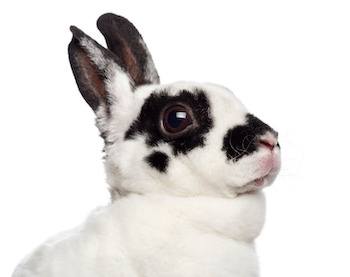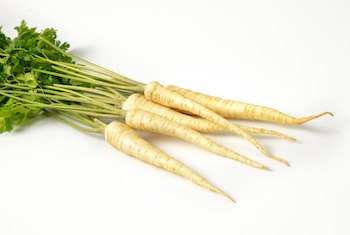Parsnips are a healthy addition to human food, but can rabbits eat parsnip? Yes, moderate portions of parsnip can be good because they pack a lot of vitamins and minerals, they’re crunchy and tasty. On the other hand, parsnips also contain high amounts of sugar for rabbits and can trigger vitamin C toxicity.
How can you feed parsnips safely to your bunny? How often are rabbits allowed to eat parsnip? Find out all that in the article below.
PROS
Parsnips are good for rabbits because they’re:
- Low in calories. Domestic rabbits are prone to obesity because they have plenty of food around and don’t exercise as much as wild rabbits, so it’s best to offer them low-calorie treats.
- High in fibers. Rabbits are herbivores and their digestive systems have perfected as fiber-burning machines. Any fiber-rich vegetable is good for rabbits because it protects their digestive systems.
- Crunchy. Your bunny needs foods that help it trim down its ever-growing teeth naturally and, luckily, parsnip can help.
- Natural diuretics. If your bunny has a urinary infection, liver, bladder, or heart issues, it needs to eliminate excess fluids, and parsnip helps.
- Potassium keeps your rabbit’s heart-healthy.
- Magnesium protects your bunny’s nervous system, warding off anxiety and sleep issues.
CONS

Parsnips have several disadvantages, such as:
- Sugar. The last thing you want is to give your rabbit diabetes, but that can only happen with long-term and excessive parsnip consumption. The most probable outcome is that the high sugar content in parsnip can cause your rabbit diarrhoea and gas.
- Vitamin C. Rabbits can extract vitamin C from their food and they can’t eliminate excess vitamin C through urine like people. If you feed too much parsnip to your rabbit, you might trigger vitamin C toxicity.
- Phosphorous. Parsnip has huge quantities of phosphorous, which might endanger your bunny’s bone health.
- Allergenic potential. Parsnip tops trigger allergic reactions in people such as skin redness and itching, which your rabbit can also experience.
How Many Parsnips Should I Feed My Rabbit? Tips and Recommendations
Remember that parsnip should be part of a healthy varied diet of vegetables. Your rabbit needs half a tablespoon of veggies per day per pound of body weight, but parsnip should only be part of that portion, along with two or three other veggies.
- Wash the parsnip carefully before feeding it to your bunny. That way, you can remove any traces of dirt or pesticides. The best advice would be to buy organic parsnip, at least for your rabbit, if not the whole family, particularly if your pet is prone to digestive imbalances or immune problems.
- Peel the parsnip. Although parsnip peel isn’t dangerous or toxic, it might be imbued with toxic pesticides.
- Chop the parsnip to make it easier to eat and to decrease the risk of choking.
- Parsnip peelings aren’t any more dangerous than sliced parsnip in terms of their ingredients. However, the risk of choking is higher because rabbits have powerful jaws which are used to cutting down food.
- Start gradually, with just a small slice of parsnip to see how your bunny digests it. Watch for any distressing signs of gas or belly aches that interfere with your rabbit’s disposition. If your rabbit is crunching on the floor of its cage and doesn’t want to eat or play, contact your vet immediately.
- Don’t feed expired parsnips to your rabbit. Expired foods can be mouldy even if you can’t see it with the naked eye, and mould is a dangerous silent killer for rabbits.
- Stick to raw parsnip because it has more nutrients, less sugar and it’s crunchier.
- Offer parsnip just once per week, or two times max if you have a bigger rabbit.

